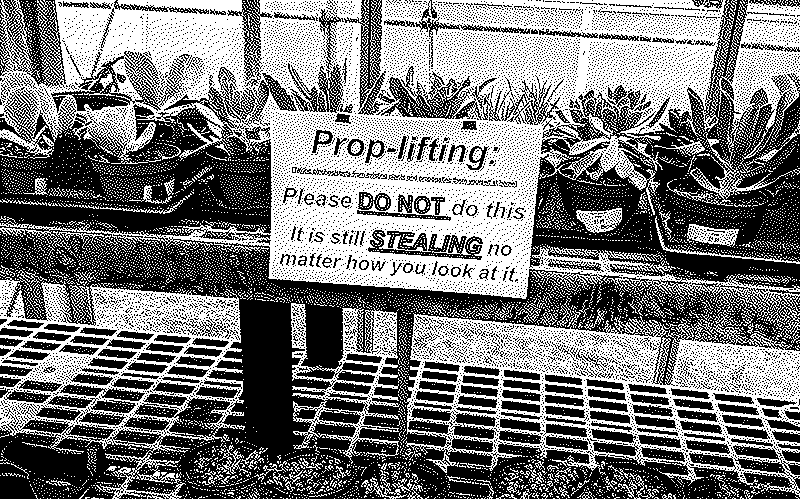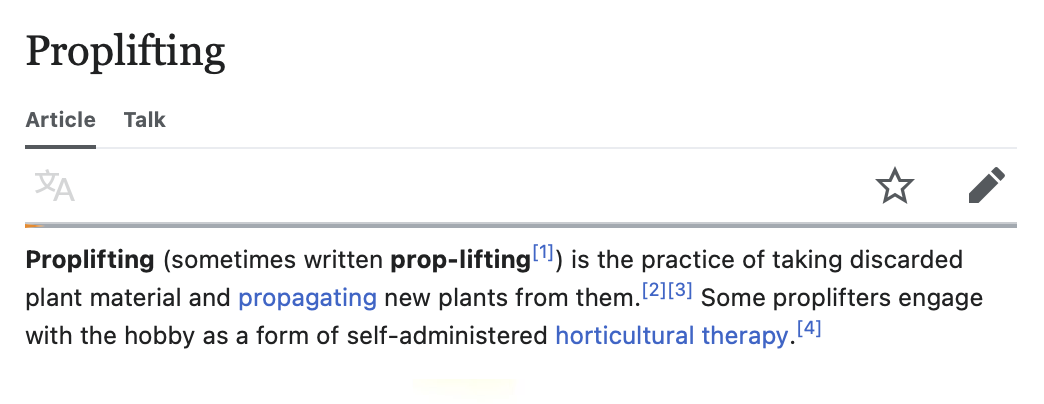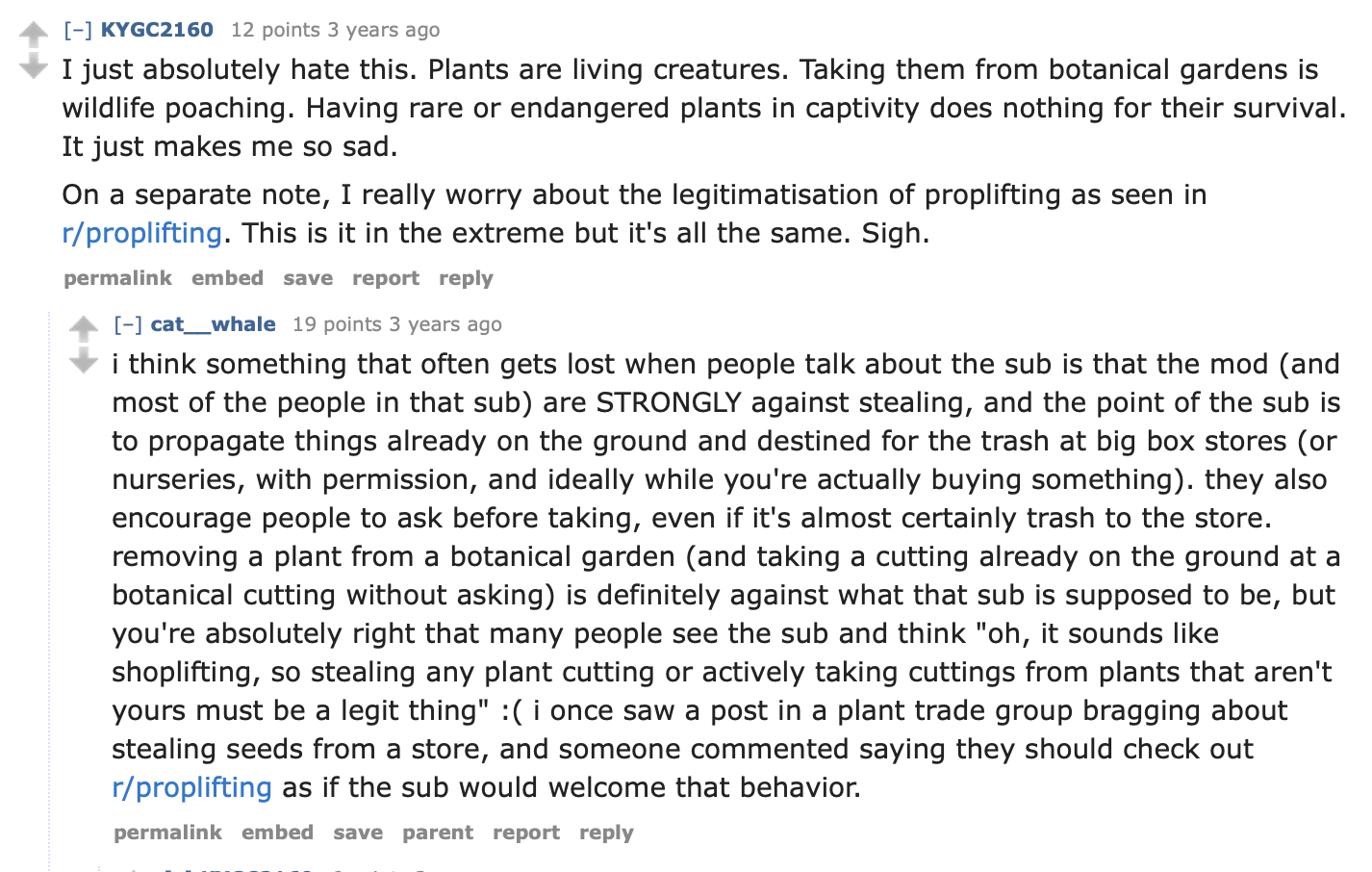Proplifting, Plant Piracy, and Dumpster Chocolates
This essay is part of a series on offensive horticulture.
Dumpster Chocolates
"Hey, what are you doing for the rest of the evening? I wanna show you something."
My friend leads me to an unremarkable parking lot, where we chat about girls and career goals and music.
Some local folks saunter around the corner, "Hey! You here for the chocolate?"
"Yeah, come join us! My friend Taylor here is visiting from Cali."
"Oh, welcome to town! Nice to meet you both. No, it's alright, we'll come back another night. It's all yours. Enjoy!"
A few minutes later, a chef-looking character dumps sheets of dark chocolate into the dumpster and hurries back into the building.
My friend pulls out two grocery bags from his pocket, and we skim ~10 lbs. of chocolate off the top of the dumpster.
Apparently gourmet chocolate shops make batches unsuitable for customers, but perfectly suitable for low-lifes like me.
Dumpster Law
According to California v. Greenwood, dumpster diving is totally legal on public property if there are no superceding local laws.
But trash isn't legal treasure in many US municipalities. Most populous cities/towns have laws against "scavenging" (albeit with selective enforcement).
Throughout this series, I'll continue to offer my narrow US-centric perspective. If you have any wisdom to add from other corners of the world, please email me and I'll add a footnote.
Props
Brief horticulture detour: plants can reproduce asexually. To create a genetic clone of a plant, sever it in a spot rich with stem cells, then leave that tip in water or soil. Your cutting will grow roots and life will go on.
Honor Among Thieves
"If it's a chain it's free rein, but support your local nursery!"
Many proplifters abide by pirate codes.
Corporations like Walmart and Home Depot sell plenty of plants. Lowe's alone sold $9B of lawn and garden supplies in 2022. Some proplifters believe that such sales volumes justify direct theft by cutting/tearing live plants.
"Dumpster chocolate" proplifters draw boundaries at "floor finds", i.e. they only take plant matter they believe will be thrown away. This rarely occurs on public property (it's theft!).
Public Gardens, Private Property
Nitpick: Proplifting from a publicly-accessible private garden is theft, not poaching.
In 2020, a plant influencer stole cuttings of Monstera obliqua peru from the Huntington Botanical Gardens and publicly confessed to the crime. This was at the height of the obliqua hype cycle.
The San Diego Botanic Garden is a another target for plant theft, fueled by that same fervor for blackmarket houseplants.
Botanic gardens are havens for conservation, but jealous souls see that verdant sprawl and their eyes turn green, green, green. They mistake that abundance for surplus.
Front Yard, Fair Game?
Private plants overhanging your property are fair game.
Private plants overhanging public property are sometimes fair game.
Harvest dumpster chocolates with caution.
How to Politely Ask for a Cutting
If you notice a particularly nice plant variety in somebody's yard or home:
- Approach the envied plant owner.
- Compliment their lovely home and splendid taste in plants.
- Ask if they know where they purchased the coveted plant.
- Ask if you can take a small cutting. Offer to propagate a plant for them as well.



